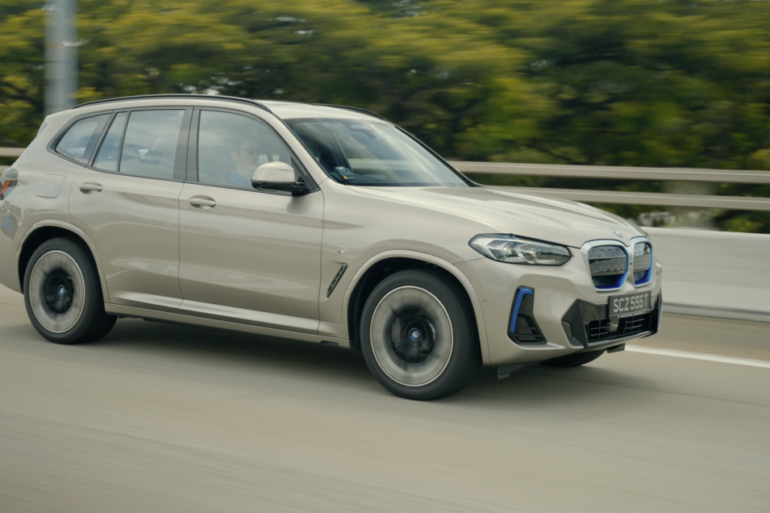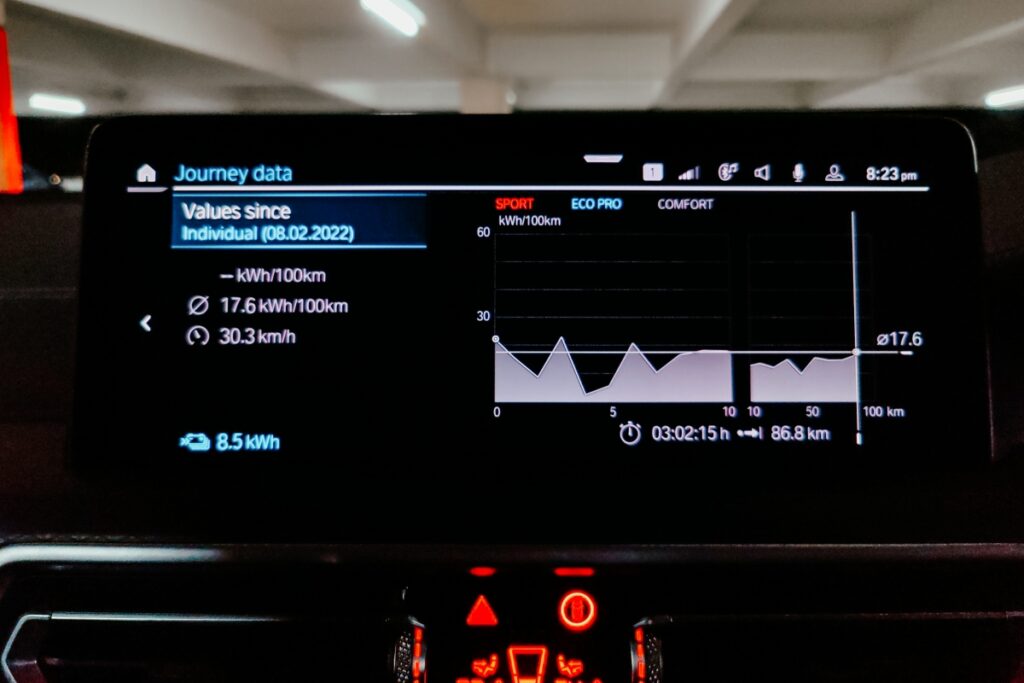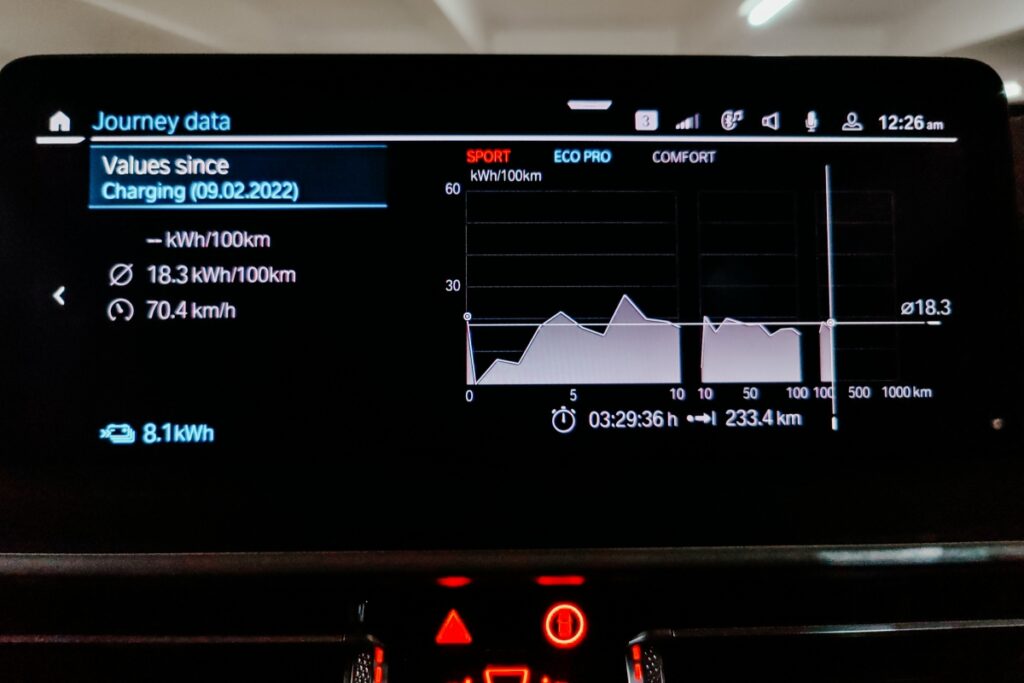Having never driven an EV himself, our writer took the BMW iX3 M Sport Impressive out for a spin, and err… had his electric cherry popped.
Think back to the time just before your very first date. Remember the hypersonic butterflies flying repeatedly at Mach eleventy-billion into the walls of your stomach? This author’s first and only encounter with a fully electric vehicle (EV) to-date has been as a passenger in the front seat of a BYD Grabcar in 2017. To say there was some worry in the lead-up to his BMW iX3 media test-drive is a bit of an understatement.
Thoughts on performance range-anxiety, available charge points, how to charge, how long it would take, potentially being left high and dry in the middle of the media test-drive with a flat battery and so on preoccupied this author’s mind with such ferocity to the point that sleep did not arrive until past three o’clock the morning of the iX3’s scheduled collection, necessitating the start of the day to be fuelled by copious amounts of caffeine and nicotine.
As it turns out, there was no need to fret or sweat.
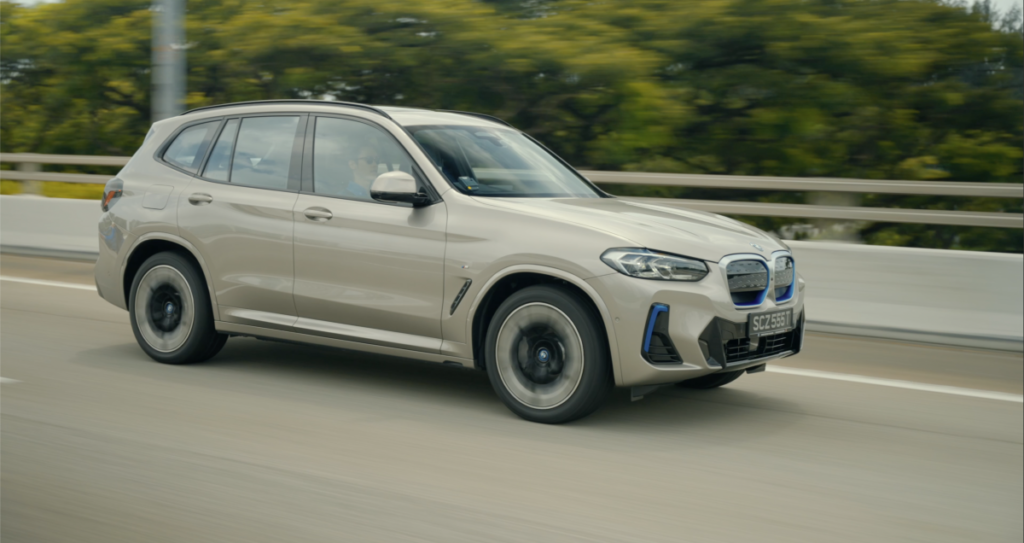
Our colleague Sheldon has already done a thorough lifestyle-review of the iX3 in full-glory 4K, so this article will concentrate on the rudiments of the EV experience from the perspective of a complete newbie – yours truly.

nice ‘n easy.
Familiarity with BMW’s platform means being able to easily and smoothly slide into the iX3 and adjust to a comfortable position, then simply start up and go. Remember, this is essentially an X3 with electric-drive gubbins under the hood, floor, and in the rear-end, which means all controls and switchgear are where one would expect to find them, including physical controls for the iX3’s tri-zone climate control system. Menu and submenu item placements on iDrive also means that it’s very easy to get things done via the controller knob or touchscreen, such as pairing a smartphone, streaming music, GPS-navigation and monitoring various aspects of this sports utility vehicle (SUV) sorry, sports activity vehicle (SAV) as BMW calls it.
While more tech-savvy drivers might be inclined to thumb their noses at what is essentially a tried and tested (boring?) platform and interface, keep in mind that a novel EV experience may turn out to be sensory and cognitive overloads for those of us who’re older and/or not as savvy because there would be so much to take in and relearn. Thankfully, there are no steep learning-curve issues here because of said familiarity with BMW’s platform, and this allowed for an easy and enjoyable first EV experience with the iX3.
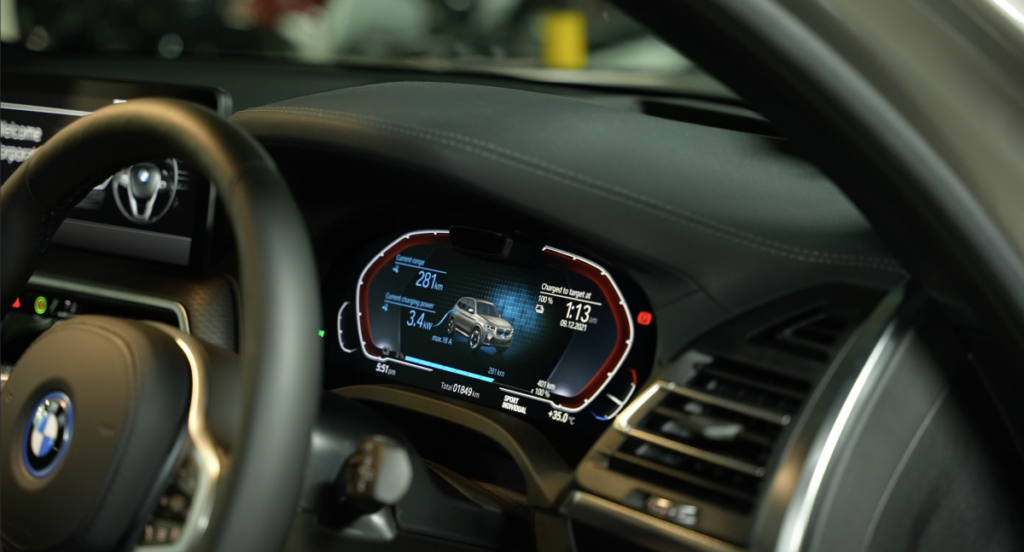
endurance math.
Next up is fuel economy calculations for internal-combustion engine (ICE) vehicles vis-a-vis EVs – they’re analogous. Take, for example, the ubiquitous “amount of fuel consumed per set unit of distance” measurement:
ICE: litres/100km
EV: kWh/100km
As with ICE vehicles, the lower the kWh of electricity consumed per 100km by an EV, the better. This analogue also continues on with the now-less ubiquitous “distance per unit fuel” measurement-derivative:
ICE: km/litre
EV: km/kWh
In the same way that we’d divide 100 by the number of litres consumed to derive the corresponding km/litre number, we’d also divide 100 by the number of kWh consumed to derive the corresponding km/kWh figure. With this notation, the higher the number of kilometres travelled per kWh, the more efficient the EV.
During 86.8km of pure street driving, the iX3 consumed 17.6kWh/100km or 5.68km/kWh. During 233.4km of mostly highway cruising, the consumption was 18.3kWh/100km or 5.46km/kWh.
Here’s where EVs differ from their ICE counterparts – EVs are more efficient in lower-speed street-driving scenarios whilst ICE vehicles do their best at steady state highway cruising. This difference for the iX3 however is not that much as the calculations show, even though the highway portion was done mostly at triple-digit speeds using adaptive cruise control.
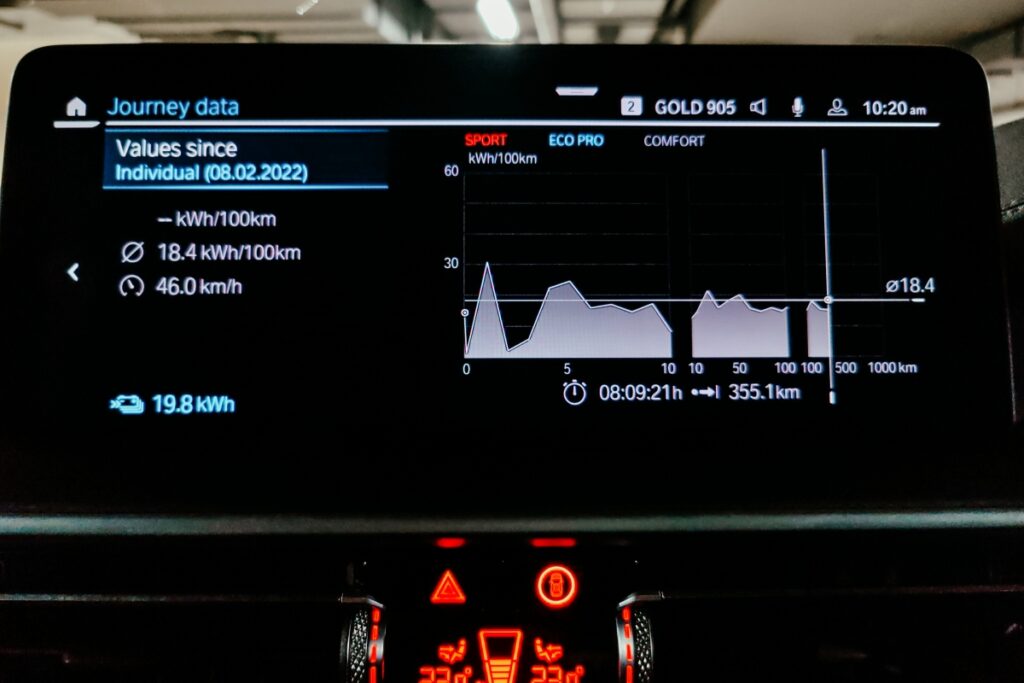
BMW claims 19.4kWh/100km combined-cycle economy. Going by this author’s combined average of 18.4kWh/100km for the whole 355.1km test-drive, and given the 80kWh battery pack, a calculated real-world range of almost 435km from a 100% charge is available from the iX3. Good to know how far it’ll go, and even better to best BMW’s claimed figures!
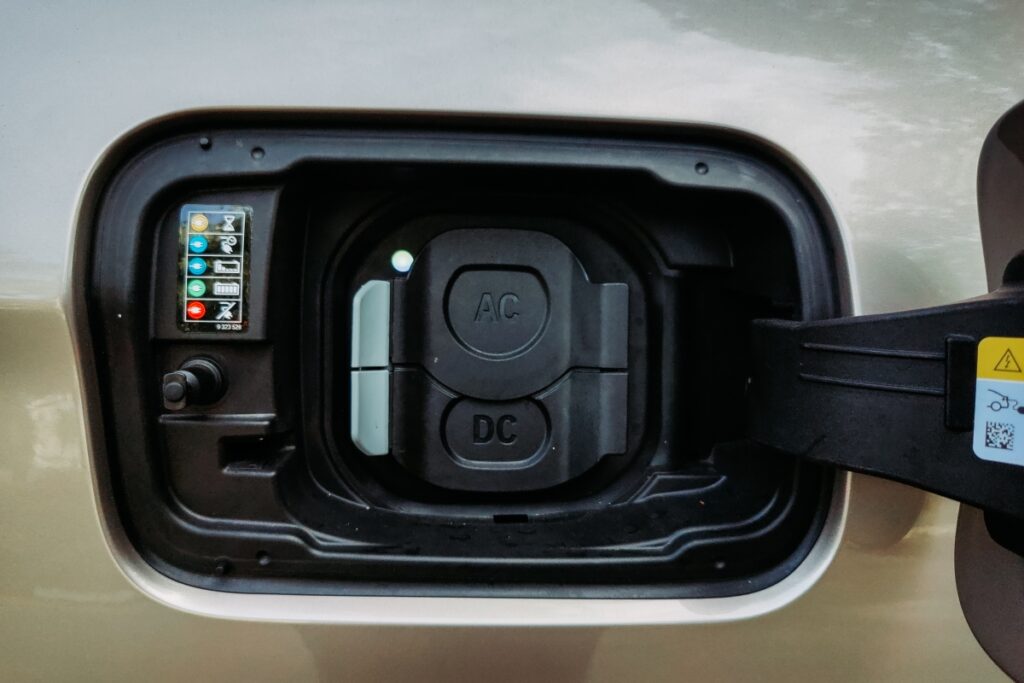
charge me up baby!
Good ol’ fashioned romancing can be hard work, requiring rest and recharge thereafter, and that’s what charging the iX3 felt like – a well-deserved break.
Actually, no, it started with frustration through no fault of the SAV. Single DC charge points at each of the nearest Shell Recharge-equipped stations were constantly occupied, and there appeared to be no way to reserve a slot ahead of time with the Greenlots smartphone app. Then Sheldon chimed in with, “have you downloaded the SP Utilities app?”
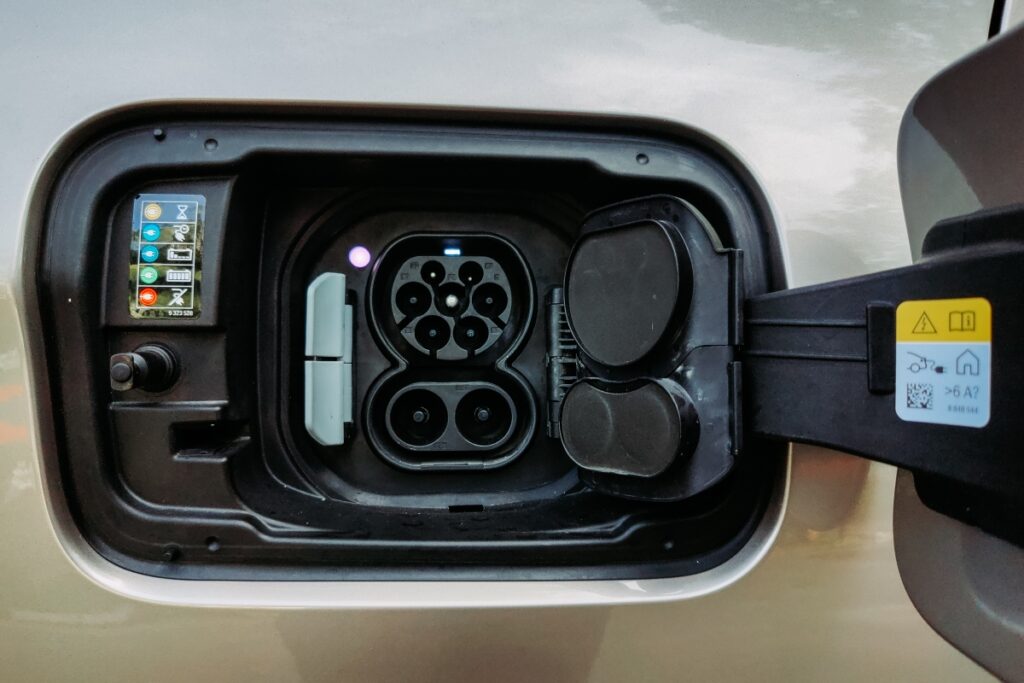
DUH! This opened up a whole slew of charge points around this author’s locale, especially since faster DC chargers were specifically being sought as opposed to AC ones.
Furthermore, if this author had simply remembered that colleague Marcus has written a comprehensive Charge-a-sutra, much of the initial frustration could have easily been avoided in the first place.
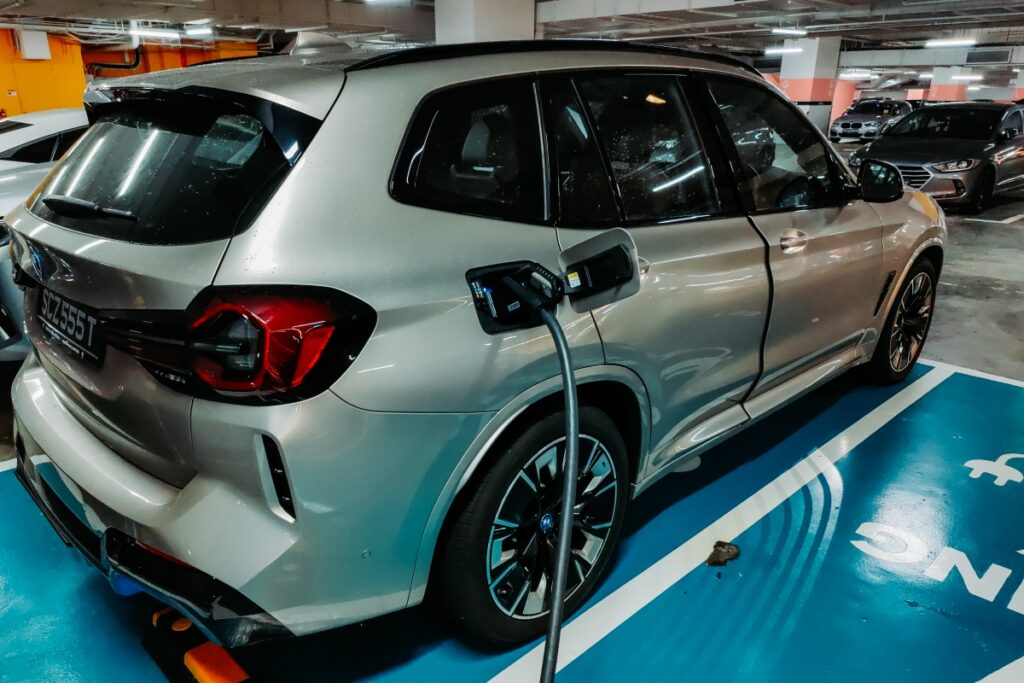
Charging the iX3 was a cinch. Simply reverse into one of the EV charging spots, plug the DC charger into the iX3’s CCS2 charge port, scan a QR code on said charger with the SP Utilities app and it’s off to the races while standing still. In half an hour, almost 100km of range was added to the iX3 via the 50kW DC charger.
However, this author couldn’t help but wonder why, when many EVs today support faster charging rates such as up to 150kW in the iX3, DC chargers in Singapore are predominantly 50kW ones. Imagine how much quicker and easier a 100kW charger can make the charging process. Not everyone likes it slow and gentle all the time. Fast and furious can be beneficial during time crunches.
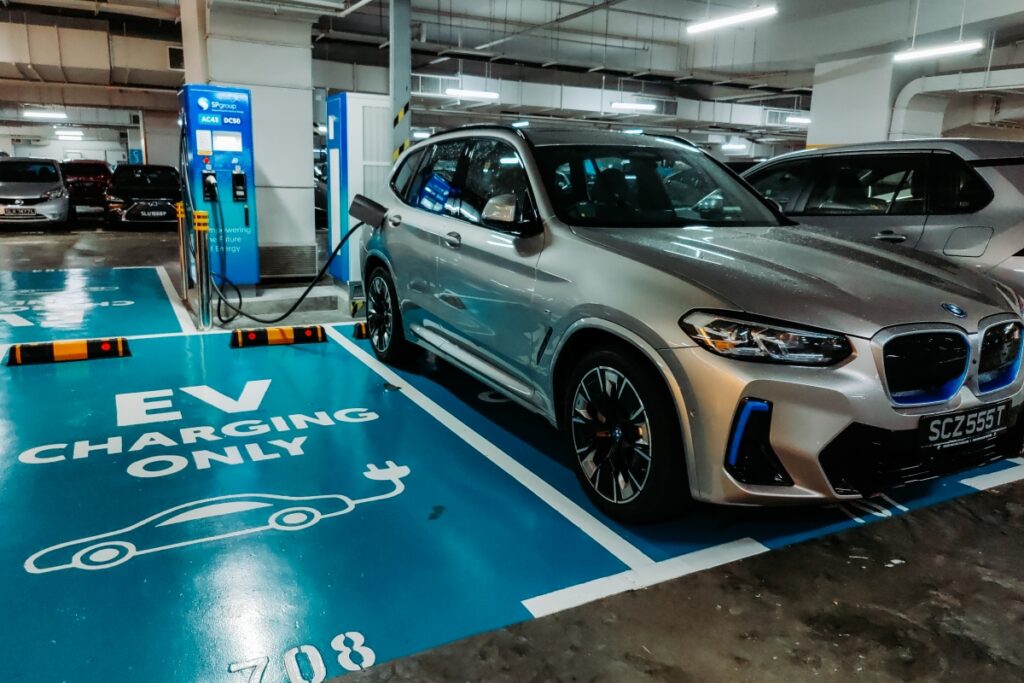
Compounding this bit of irritation was the fact that this specific DC charger was located in a business park, thereby incurring additional parking fees on top of charging costs. For those charging at their office locations where monthly season parking fees would be incurred anyway, this would be by-the-by. However, for everyone else, this is another potential irritant because no one pays parking charges when refuelling at petrol stations. No wonder, then, that the scarce petrol station-based charge points were seen to be constantly in use.
The long and short of it is that Singapore’s charging infrastructure needs to massively and rapidly improve if we’re to truly become EV-friendly.
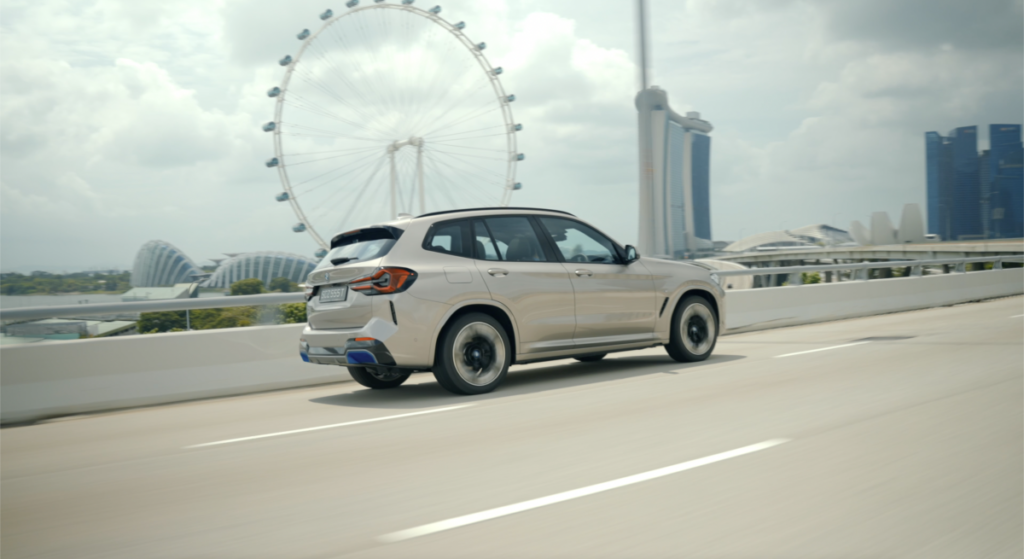
the in’s and out’s.
Perish all thoughts of filming YouTube reaction videos of searing passengers’ eyeballs with mind-blowing acceleration. The iX3 accelerates urgently, not furiously, with 400Nm of torque on tap from 1rpm, and it does so in almost-total silence. Remember, this is a nearly 2.3-ton vehicle and that weight naturally blunts performance. However, given the battery pack is situated low down beneath the floor, body roll is kept well in check even in the most enthusiastic of corners.
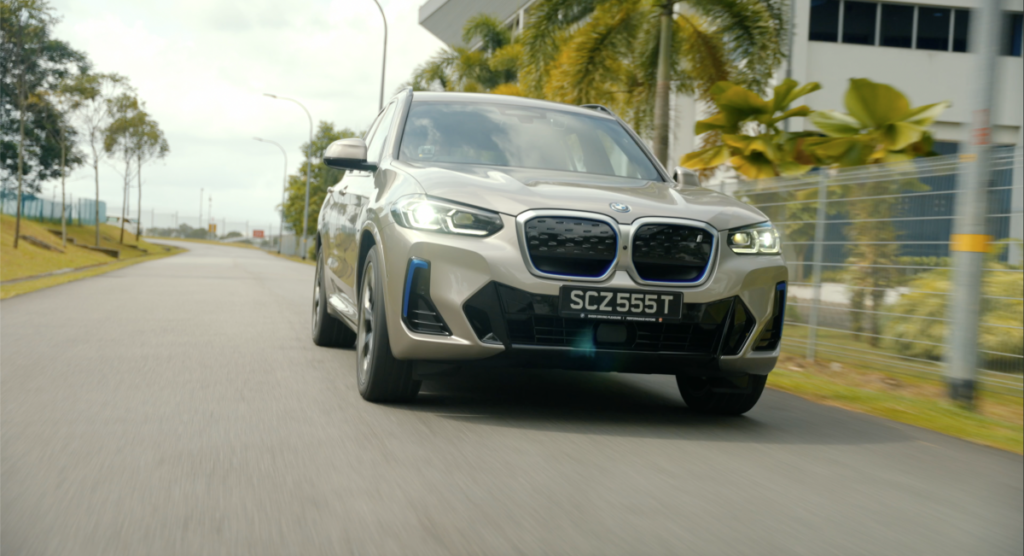
The key, then, is to drive the iX3, a family hauler, normally. Road and wind noise are kept in check except over rougher tarmac where tyre noise does intrude some. The tyres themselves, Yokohama Advan Sport V107 245/45R20 fore and 275/40R20 aft offer good grip and are well-behaved in daily-driving situations.
For almost the entirety of the drive, the iX3 was left in Comfort mode and the suspension handled bumps, ruts, potholes, expansion joints, speed strips and the pockmarked plains of Pasir Ris Drive 3 with aplomb. Out on highways, the standard-fit adaptive cruise control was much appreciated, even in the pouring rain, although it is better used in “Distance-control mode” and manually steered as opposed to “Assisted-driving mode” where the iX3 steers itself.
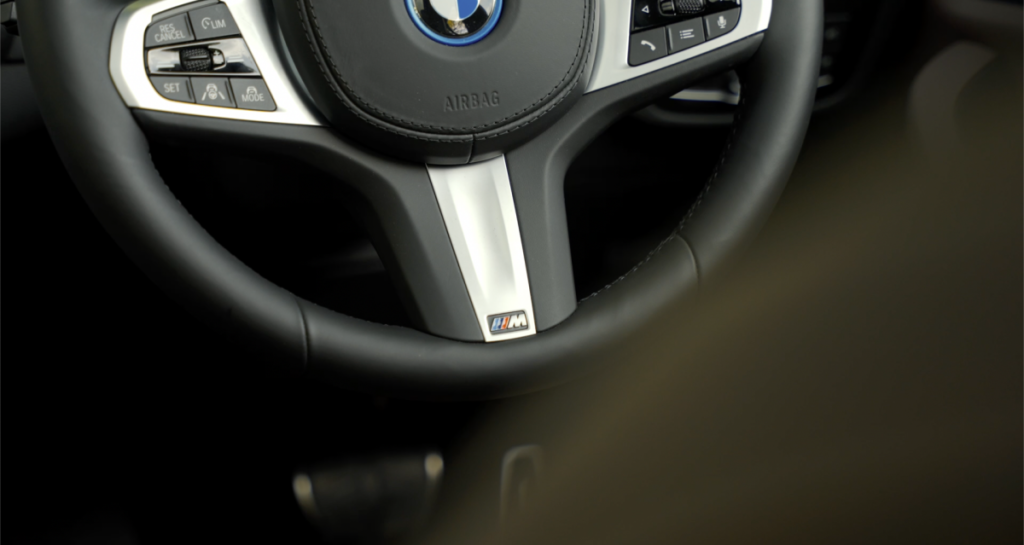
Regenerative braking, or simply called regen, is a feature of EV-driving, where the batteries are charged courtesy of the electric motor when slowing down and coming to a stop. Within iDrive, the iX3 features various modes for regen – Adaptive, High, Medium and Low. Adaptive uses the cruise-control’s radar system to vary the intensity of regen depending on traffic and driving conditions, and works well enough.
However, this author prefers a predictable accelerator pedal behaviour and regen was left in High for most of the drive. In High, one-pedal driving is almost possible, where the iX3 slows down sufficiently by gradually lifting off the accelerator pedal, and only requiring the brakes at the final portion of a full-stop. This implementation appears better than true one-pedal driving since the brakes will always need to be applied to some degree, and would help mitigate brake-issues associated with lack-of-use.
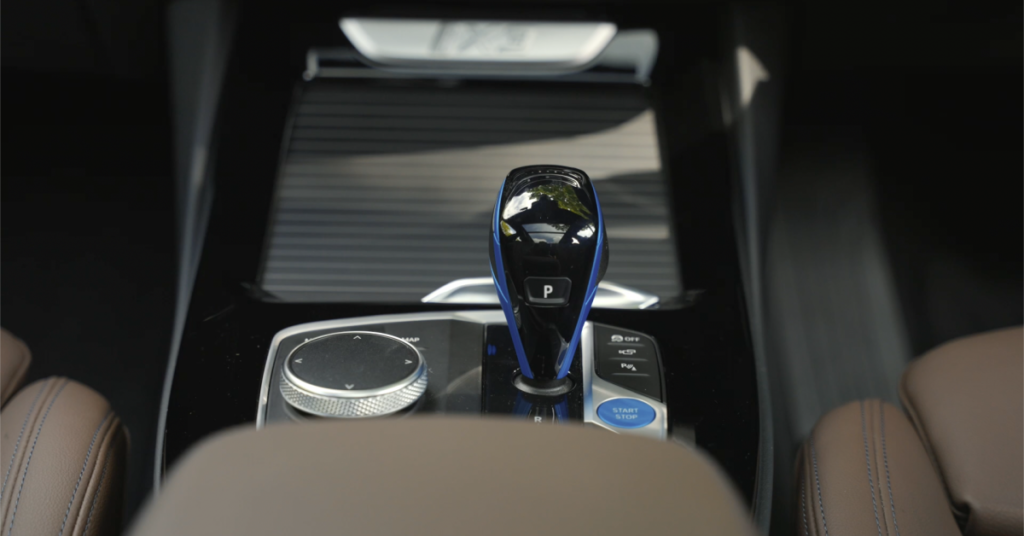
Space is also good, with this 1.82m-tall longer-of-limb and shorter-of-torso author being able to sit comfortably behind his own driving position. A panoramic sunroof lets additional light into the cabin, helping it to feel larger and more airy. Boot space can be increased from 510 to 1,560 litres with the rear seatbacks fully down.
All in all, the iX3 showed itself to be a capable and willing teacher and companion to this now-former EV virgin. With his electric cherry well and truly popped, it behoves this author to say very sincerely, “thank you BMW for the unforgettable experience.”
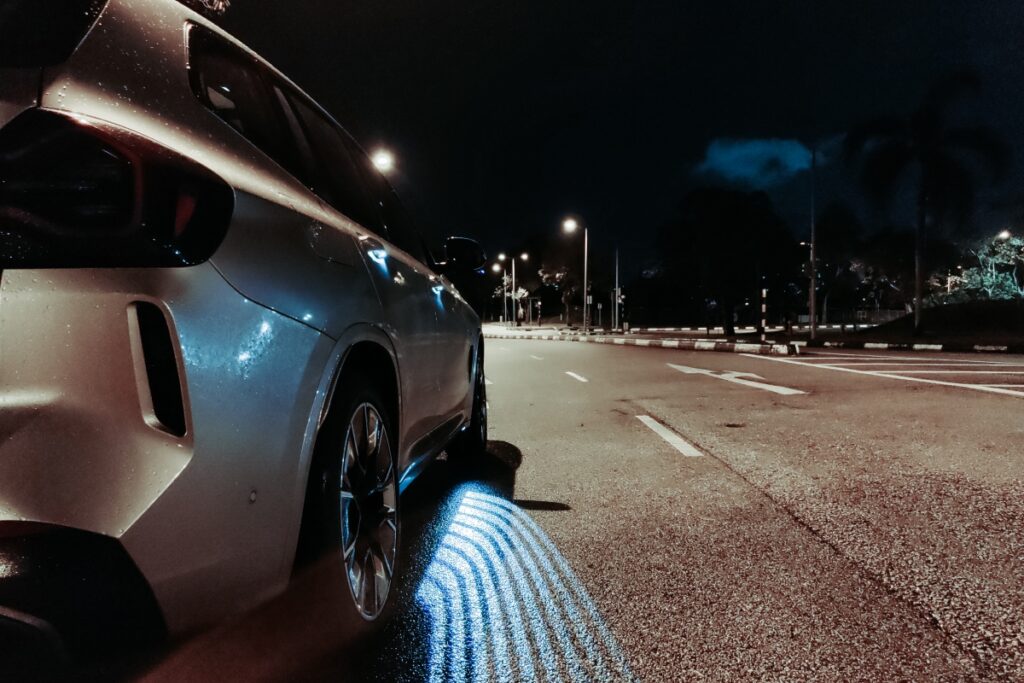
fast facts.
BMW iX3 M Sport Impressive.
Battery Output: 80kWh
Power: 286hp @ 6,000rpm
Torque: 400Nm
Top Speed: 180km/h (limited)
Range: up to 461km (claimed)
0-100km/h: 6.8 seconds
VES Band: A1 (S$25,000 rebate)
Price (as tested): S$281,888 with COE
Contact: BMW Singapore
Need more electrification in your life? Check out the latest EVs here!

